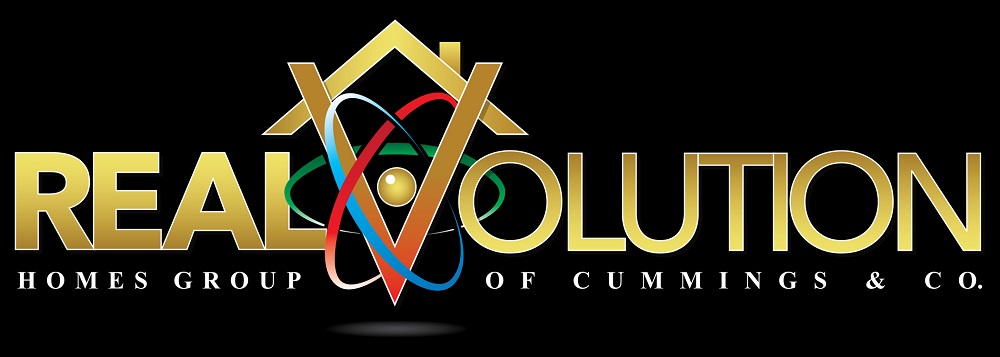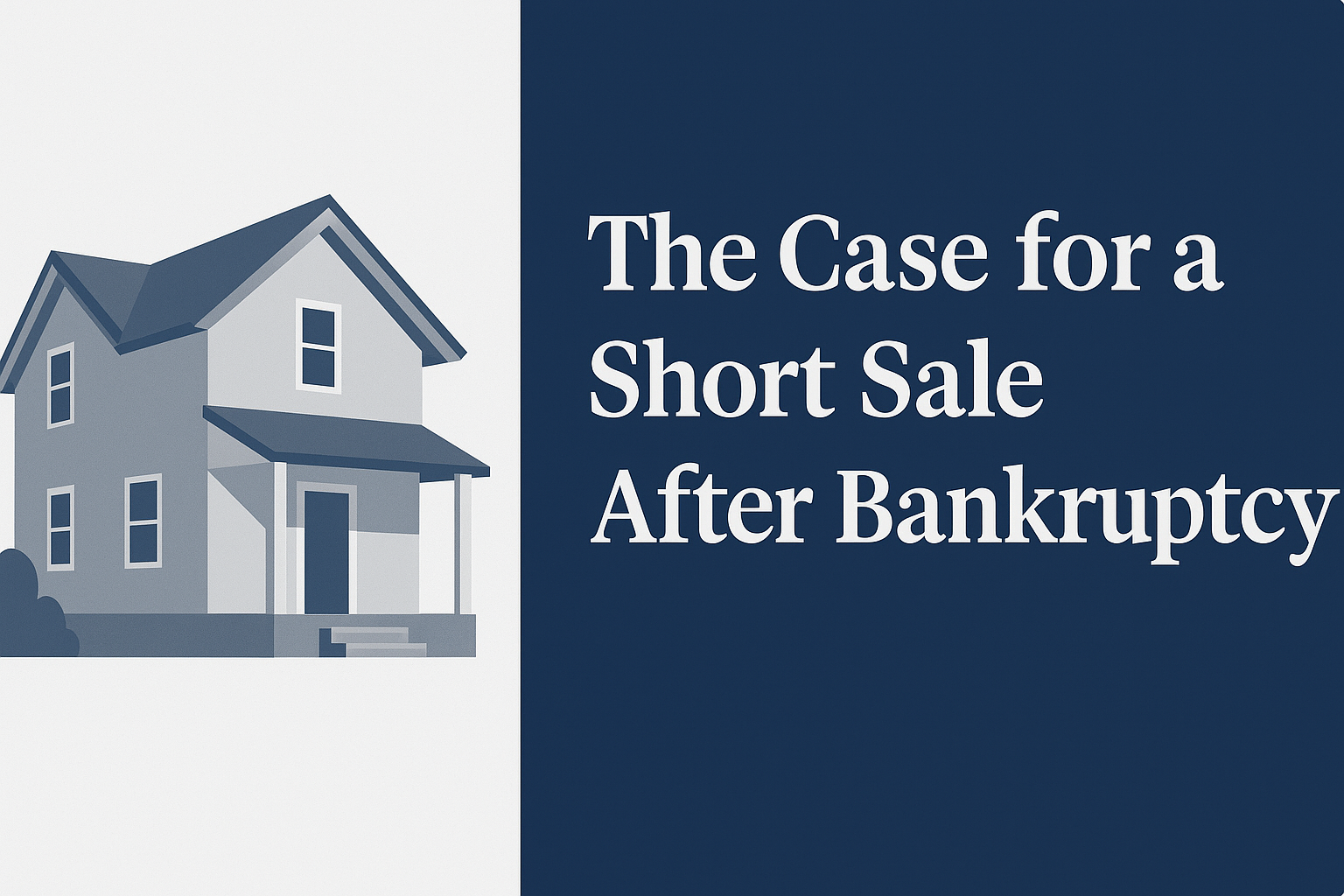Why “Just Walk Away” Is the Worst Post-Bankruptcy Advice: Maryland Short Sale Guide
Why “Just Walk Away” Is the Worst Advice You Can Get After Bankruptcy
How Maryland homeowners can protect their credit, stop future lawsuits, and finally move forward — the right way.
If you’re facing financial hardship or have already filed bankruptcy, chances are you’ve heard this line from someone — maybe even your attorney:
“Don’t bother trying to sell it. Just walk away.”
It sounds simple. But it’s some of the worst advice you can take.
Here’s the truth: walking away doesn’t end the problem. It only delays it — and in many cases, it makes things far worse.
As someone who’s been through it personally and professionally, I want to show you exactly why.
My Story:
Back in 2007, when the housing market crashed, I was going through a divorce.
My income was cut in half almost overnight, and I was staring down bankruptcy, foreclosure, and losing everything I’d worked for.
That experience forced me to learn — not from a textbook, but from real life — how the system works when you’re in distress.
The difference between me and most people who talk about short sales is simple:
I’ve lived it.
That crisis completely reshaped my real estate career. For nearly twenty years now, I’ve specialized in helping homeowners find dignified solutions to foreclosure — especially those who have already gone through bankruptcy and don’t know what comes next.
The Real Question: Short Sale or Just Walk Away?
Let’s cut to the chase.
What’s actually better for you — selling your home through a short sale or walking away and letting the bank foreclose?
While every situation is unique, one thing is consistent:
A short sale almost always puts you in a stronger position — financially, emotionally, and for your credit.
What Is a Short Sale?
A short sale happens when your lender allows you to sell your home for less than what you owe on the mortgage.
The bank agrees to take the loss so the property can be sold — and you avoid foreclosure.
You get closure and control. The bank gets a quicker, cleaner resolution.
That’s why short sales exist — they’re a win-win.
The Benefits of Doing a Short Sale
1. Less Credit Damage
A short sale typically shows on your credit report as “settled for less than full balance” instead of “foreclosure.”
The difference is huge: most people can qualify for another mortgage within 2–4 years after a short sale — compared to 7 years or more after a foreclosure.
2. You Stay in Control
You choose your buyer, you control your timeline, and you decide how you exit.
No sheriff sale, no eviction notice on the door, and no loss of dignity.
3. Possible Relocation Assistance
Many lenders offer cash-for-keys programs or relocation funds — sometimes $3,000 to $10,000 or more — just for cooperating with the short sale process.
4. Deficiency Forgiveness
In many cases, lenders will waive the unpaid balance after closing.
You walk away free and clear — not chased by debt collectors.
5. Faster Recovery
A foreclosure can drag on for a year or longer. A short sale can often close in 90-120 days, letting you move forward sooner.
What Actually Happens When You “Just Walk Away”
Here’s what most people don’t realize when they take that advice:
Foreclosure crushes your credit for years.
The bank decides when and how it ends.
You could still face a deficiency judgment (being sued for the unpaid balance).
Your name stays on the title long after you’ve moved out — sometimes for years.
You’re still liable for HOA or condo fees, fines, or code violations tied to that property.
In short: walking away doesn’t erase responsibility — it just hides it for a while.
What Bankruptcy Attorneys Often Miss
Let’s be clear — bankruptcy attorneys do critical work. Bankruptcy law is complex, and no one should go through it without one.
But bankruptcy and real estate are two completely different worlds.
Most bankruptcy attorneys focus solely on debt discharge.
They don’t always know the full real-estate side — what happens with title, taxes, and property laws after the discharge.
That gap can lead to costly surprises.
The “Title Still in Your Name” Trap
When you walk away after bankruptcy, you’re relying on the bank to remove your name from the title.
In Maryland, that doesn’t happen automatically.
Because of transfer and recordation tax rules, banks often hold off on taking title until they resell the home. They’ll do what’s called a “double transfer” — moving the title out of your name and into the new buyer’s name on the same day of settlement.
It saves the bank money, but your name stays on record until that happens — sometimes a year, two years, or even longer.
During that time, you’re still the legal owner.
Real-World Example: The Flooded Townhouse
I once worked with clients who followed the “just walk away” advice.
The bank hadn’t foreclosed yet, and their names were still on the deed.
A major storm hit, the sump pump failed, and water flooded their townhouse — and the two next door.
They were sued by both neighbors’ insurance companies for tens of thousands of dollars because, legally, they still owned the home.
That’s not a bankruptcy problem. That’s a real estate ownership problem.
The Hidden Waiting-Period Rule
Under FHA guidelines, you can’t qualify for a new mortgage until three years after your name is off the title of your previous home — not just three years after your bankruptcy.
If the bank delays foreclosure for two years, your clock hasn’t even started.
That’s how a three-year wait easily becomes five.
Why a Short Sale After Bankruptcy Is the Perfect Exit Strategy
If you’ve already been discharged from bankruptcy, you’re actually in a great position.
Your debt has been legally erased — now it’s about closing the real-estate side cleanly.
By doing a short sale after discharge, you:
Control the timeline and know exactly when your name comes off title.
Eliminate all risk of lawsuits, HOA judgments, or property code fines.
Start your three-year mortgage clock immediately when the sale closes.
Pay nothing out of pocket — the bank covers commissions, and the buyer covers attorney fees.
Move forward with clarity, dignity, and peace of mind.
The Truth About Commissions and Attorney Fees
This is one of the biggest myths I hear:
“My attorney said if I short sell after bankruptcy, I’ll have to pay the commissions myself.”
That’s absolutely false.
The bank pays 100% of real-estate commissions.
You won’t pay a single penny for me (or any agent) to list and sell your home.
Think about it: if the bank forecloses, they’ll have to hire an agent anyway.
A short sale saves them time, money, and effort — so they pay for it now.
And because Maryland considers mortgage negotiation to be the practice of law, every short sale must involve a licensed attorney.
I work directly with a title attorney who’s negotiated thousands of short sales in Maryland.
His fee is paid by the buyer, not you — it’s disclosed up front, and buyers gladly cover it because they’re already getting the home 10–15% below market value.
The Icing on the Cake: HOA, Condo & Assessment Fees
Here’s one more overlooked trap.
Do you have a homeowners association, condo association, front-foot fee, or special assessment?
If so, you need to know this:
From the day your bankruptcy is discharged, you’re still responsible for those fees as long as your name remains on title.
Many people stop paying after discharge, assuming the debt was wiped out.
Then a year or two later, they’re hit with a lawsuit from their HOA for unpaid dues, late fees, and attorney costs — and they lose, because legally they still own the property.
In Maryland, it’s black and white:
If your name is on the deed, you’re responsible. Period.
Banks often hold foreclosed homes in their inventory for years before transferring title. During that time, those fees keep stacking up in your name.
A short sale fixes that instantly.
Once you close and sign the deed, you’re free of the property forever.
The Bottom Line: Finish Strong
If life has brought you to the point of bankruptcy, you’ve already endured enough.
Now it’s about protecting your future.
A short sale after bankruptcy discharge is the cleanest, safest, and smartest way to close the chapter.
It clears your title, stops the lawsuits, starts your credit-recovery clock, and costs you nothing out of pocket.
Your bankruptcy protects you from the debt.
Your short sale protects you from everything else.
Let’s Talk
I’ve spent nearly two decades helping Maryland homeowners through situations just like this. I know the stress, the confusion, and the relief when it’s finally resolved the right way.
If you’re unsure what to do next, let’s talk.
No pressure. No sales pitch. Just clarity.
Together, we’ll make sure you don’t just walk away — you walk forward.


